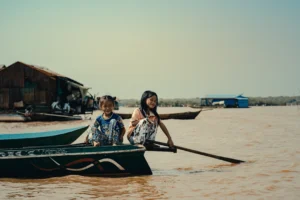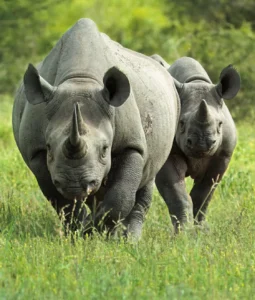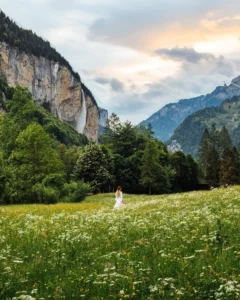
What’s really important as a cinematographer is to think about blocking. If I take a photo of a building, I don’t need to think about that. I only need to think about composition. As a cinematographer, despite the whole complexity of lighting, you also need to consider your shot from beginning to end, which is really defined by how the actors in the frame move. There are multiple ways you can move with them or around them. It gets a lot more complex.
Nils Clauss
You can also listen to this episode on iTunes, Pocket Casts, Spotify, Castbox, and Google Podcasts.
Unleash your creativity behind the lens – join our photography community today!

In this episode, I speak with photographer and cinematographer Nils Clauss. Nils has been working successfully on an international level for several decades. Some people describe his work as “mathematical, geometrical, and emotional”, a creative mix that is difficult to balance. Nils manages to do this beautifully, all while making time for his family and working with some of the most well-known companies around the world.
We talk about:
- The art of cinematography
- How photographers can improve their storytelling skills
- Tips for working on low-budget and high-budget projects
& much more!
This is a great interview that’s suitable for anyone who’s curious about the world of cinematography. Nils Clauss uses a specific approach when telling a story. His techniques might inspire you to try something new in your photography. Even if you’re not a cinematographer, I’m sure you’ll enjoy listening to this discussion.
Here is a preview of our conversation with Nils Clauss.

Q: What can photographers learn from cinematographers in terms of storytelling?
Nils Clauss: When you do short films or short moving content, you need to think about the story. Let’s say you have a short film and you take the best screen grabs out of it, then you have a plethora of very different images in different circumstances.
As a photographer, I was always shy to do that at the beginning. I have shifted away from my photography work. Recently, I became more interested in doing personal photography work again. I suddenly understand the beauty of contrast and using different images which connect together as a story.

Q: If a photographer is interested in pursuing cinematography, what should they keep in mind?
Nils Clauss: I think it’s important to be confident in yourself. I see a lot of young people who really master the craft, but they lack their own style because they’re always trying to imitate something which they find online. It’s always very tempting, and it has been tempting for me as well.
There was a period when I started putting my films up on Vimeo. I became a daily spectator of the new forms which were uploaded on the platform. If you watch content based on what’s contemporary, what’s hot, what’s new, it’s so easy to be influenced by it.
I think that the more you engage in that sort of thinking, the more it takes you away from the essence of what this is all really about. In the end, this is about you and the story you want to tell.

Q: When you moved to South Korea, what was it like for you to start over on an artistic level?
Nils Clauss: It’s actually the place where I started out. Prior to moving here, photography was always a hobby. I moved to Korea with the intention to be more hands-on and practical. It was also a point where I realised that whatever I did, I also needed to try to make a living out of that.
There was a tremendous change. Reflecting on it, I was never really aware of it. I was just probably in it, and it happened and came together. It also took me a long time to figure out the right approach and the best workflow.
At the start, I was experimenting a lot. Part of that experimentation was also to participate in photography contests. I sent in my portfolio to various places and was rejected quite a lot. In 2011, I was awarded with the European Architectural Photography Prize. I got the grand prize for the award, and that gave me a lot of confidence.
Links
Join Our Photography Community!









